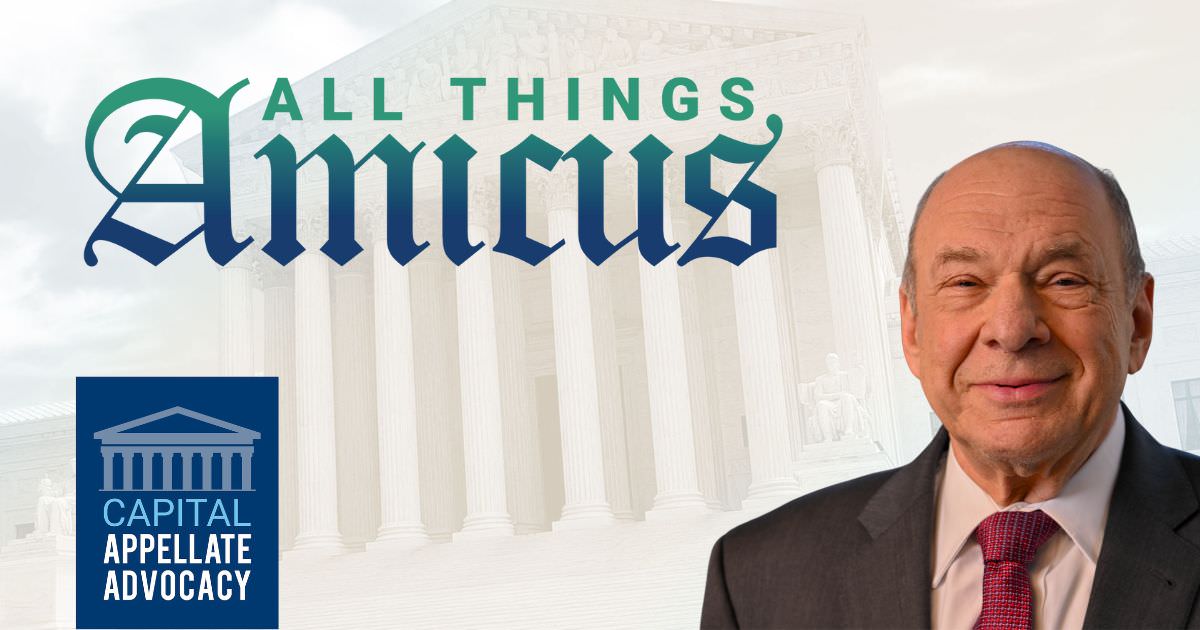The U.S. Judicial Conference’s Advisory Committee on Appellate Rules is considering a proposal to amend Federal Rule of Appellate Procedure 29(a) by requiring that a motion for leave be filed with all non-governmental amicus briefs in federal courts of appeals. In other words, if the proposed amendment were adopted, obtaining the parties’ consent to the filing of an amicus brief would not be enough. Instead, the party on the other side would be free to oppose the motion for leave on the ground that the proposed brief supposedly is “redundant” or not “helpful” or “useful.”
Law360 has published my Expert Analysis explaining why this proposal is a bad idea—not only from a practical viewpoint, but also because it would make participation in the appellate process less available to organizations and individuals with a significant interest in the legal issues presented by a case.
The proposal to require a motion for leave to file amicus briefs in courts of appeals is exactly the opposite of the Supreme Court’s decision to amend its own rules, effective January 1, 2023, by no longer requiring consent or the Court’s permission to file petition-stage or merits stage amicus briefs. See Welcome News! The Supreme Court Proposes to Ditch the Amicus Brief Consent Requirement; Sup. Ct. R. 37.2 & 37.3, as amended. Early in January 2023, I proposed, on behalf of the DRI Center for Law and Public Policy, that the Advisory Committee on Appellate Rules do the same for the filing of amicus briefs in federal courts of appeals. See Widely Read Op-Ed Urges Eliminating Amicus Consent Requirement In Federal Appeals Courts. Instead, as my article explains, the proposed amendment to Rule 29(a) is a step backwards:
The potential obstacles to filing amicus briefs that requiring a motion for leave would interpose not only may deprive federal circuit courts of helpful legal arguments or information, but also undermine an additional important function that they serve: providing organizations and individuals a voice — a direct line of communication — in appeals involving legal issues that are important to them.
Hopefully the U.S. Judicial Conference will follow the Supreme Court’s lead and reject the proposed amendment, which even if adopted, likely would not take effect until late 2026.

